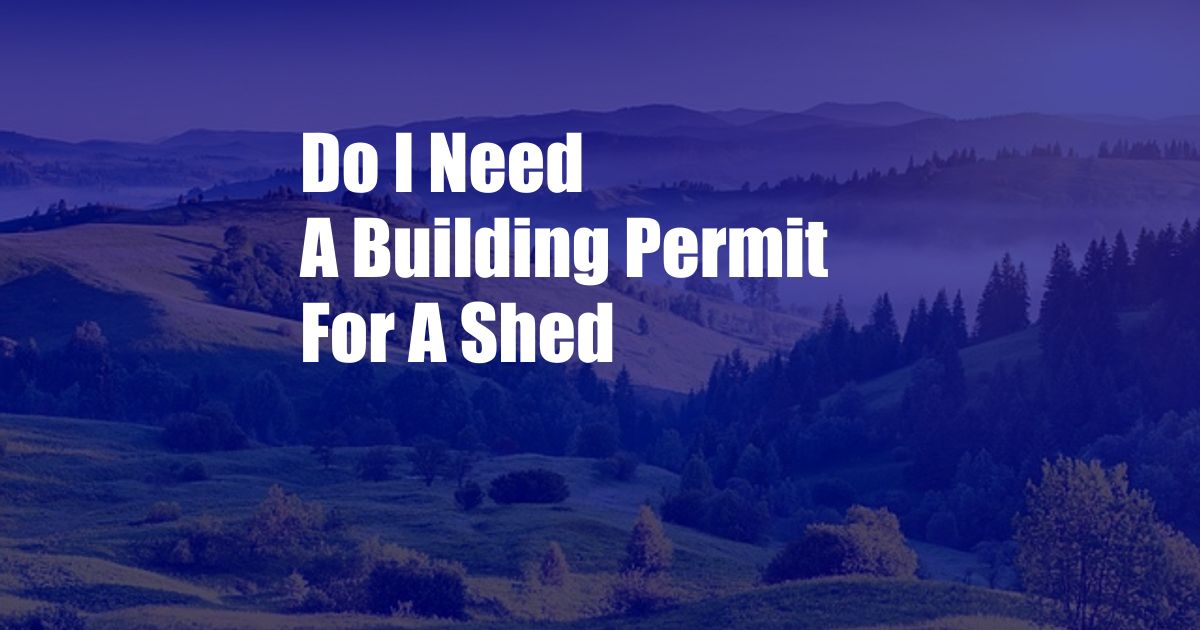
Do I Need a Building Permit for a Shed?
In the realm of home improvement projects, understanding the necessity of building permits can be a daunting task. One common dilemma homeowners face is determining if their shed requires a building permit. To shed light on this topic, we delve into the intricacies of building permits, their legal implications, and the factors that determine whether you need one for your shed.
Building permits serve as a legal requirement in most jurisdictions to ensure that construction projects adhere to established building codes and safety standards. These regulations aim to protect both homeowners and the community by safeguarding structural integrity, preventing hazards, and preserving the overall aesthetic of neighborhoods.
When a Building Permit is Required
The need for a building permit for a shed hinges on a combination of factors, including the shed’s size, location, and intended use.
Size: Building permits are typically required for sheds exceeding a certain square footage. This threshold varies depending on local regulations, but it generally ranges from 100 to 200 square feet. Smaller sheds may fall under the “accessory structure” category, which often exempts them from building permit requirements.
Location: The location of your shed on your property can also influence whether a permit is necessary. If the shed is located close to property lines or in a designated historic district, it might require a permit even if it meets the size exemption.
Intended Use: The intended use of your shed can impact permit requirements as well. Storage sheds are generally exempt from building permits, while sheds intended for living quarters or commercial activities may require a permit.
Consequences of Building Without a Permit
Attempting to construct a shed without a building permit can lead to serious consequences. Local authorities can issue fines or even order the demolition of the shed. Additionally, insurance companies may refuse to cover any damages or losses associated with an unpermitted structure.
To avoid legal repercussions and ensure the safety of your shed, it’s crucial to contact your local building department for guidance. They can provide you with detailed information on building codes, permit requirements, and the process of obtaining a permit.
Tips for Obtaining a Building Permit
Navigating the process of obtaining a building permit can be a relatively straightforward task with the right preparation. Here are some helpful tips to guide you:
1. Check with Local Authorities: Contact your local building department to determine the specific requirements for sheds in your area. They will provide you with the necessary forms and guidance.
2. Prepare Documentation: Gather all pertinent documentation, including plans, drawings, and property surveys, to support your permit application.
3. Submit Application: Complete the permit application thoroughly and submit it to the building department. Allow sufficient time for review and approval.
4. Inspect Your Shed: Once your permit is approved, construction can begin. Ensure regular inspections are conducted throughout the process to ensure compliance with building codes.
FAQs
Q: Do I need a permit for a small shed?
A: The size threshold for requiring a permit varies by jurisdiction. Check with your local building department for specific requirements.
Q: What if I build a shed without a permit?
A: Building without a permit can result in fines, demolition orders, and insurance issues. It’s important to obtain a permit before starting construction.
Q: Can I convert my shed into a living space?
A: Converting a shed into a living space may require a building permit. Consult with your local building department to understand the specific requirements.
Conclusion
Determining whether you need a building permit for a shed involves understanding the local building codes and regulations. By following the guidelines outlined in this article and consulting with your local building department, you can ensure that your shed project is compliant and safe. Remember, obtaining a building permit is not only a legal requirement but also a proactive step towards safeguarding your investment and protecting your community.